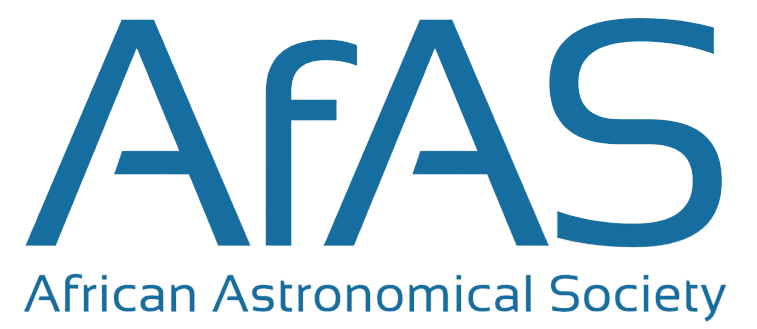The mission of the African Astronomical Society (AfAS) Early-career Science Committee is to foster the professional development and promote the engagement of early-career scientists in the field of astronomy and related sciences across Africa. We are committed to cultivating a supportive and inclusive environment that empowers early-career researchers, including students, postdoctoral fellows, and junior faculty, to thrive and contribute meaningfully to the advancement of astronomical knowledge and its applications.
Our primary goals are to facilitate networking and collaboration among early-career scientists, provide professional development opportunities, advocate for their needs, engage in outreach and education, and encourage scientific excellence in astronomy across Africa. By pursuing these goals, the AfAS Early-career Science Committee aims to contribute to the growth and advancement of astronomy in Africa, while nurturing a vibrant community of early-career scientists who will shape the future of astronomical research, education, and innovation across the continent.
AfAS Early Career Science Committee Mission Statement
The purpose of the African Astronomical Society (AfAS) Early Career Science Committee is to foster professional development and promote engagement of early career scientists in the field of astronomy and related sciences across Africa. Early career scientists include undergraduate and postgraduate students, and postdoctoral fellows and junior faculty members within 7 years of completing their PhD – with the exception for those who had career interruption due to (but not limited to) parental leave, illness, disability, community obligation or national service.
Our specific responsibilities as the early science committee are:
-
- To identify and provide professional development opportunities such as proposal writing, science communication, scientific writing, training, networking, mental health awareness, etc through workshops, conferences, schools, and mentorship programs.
-
- To identify and advocate for research-related and outreach-related projects and travels.
-
- To determine, assess and advocate for the needs of early career scientists.
-
- To act as a liaison between early career scientists in Africa and the AfAS.
-
- To plan, apply for and implement AfAS Early career events including workshops, schools, conferences, outreach opportunities and more.
-
- To organize and coordinate the full processes related to opportunities such as funding, conference participation and student prizes/awards by working hand-in-hand with the science committee to decide on an unbiased selection criteria, review panelists, and in any other related logistical factors.
-
- To encourage scientific engagement amongst early career scientists and international collaboration.
-
- To cultivate a supportive and inclusive environment that empowers early-career researchers to thrive and contribute meaningfully to the advancement of astronomical knowledge and its applications.
Committee Members
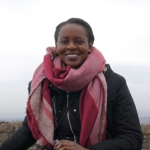
Chair: Sthabile Kolwa
Dr. Sthabile Kolwa is a lecturer and early-career Astronomer at the University of Johannesburg. They completed their Ph.D. at the Ludwig Maximilian University of Munich in 2019. In Sthabile’s research, they make use of radio continuum surveys and ancillary multiwavelength data to investigate how physical processes within galaxies, such as star-formation and black-hole accretion, evolve with cosmic time.
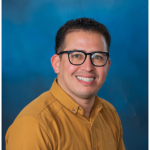
Youssef Moulane
Dr. Youssef Moulane holds a Ph.D. in Space Science and Astrophysics from the Cadi Ayyad University (Morocco) and the University of Liège (Belgium). Currently working as a Postdoctoral Researcher at Auburn University in USA, his research focuses on studying the physical and chemical properties of comets using ground and space-based telescopes. He is also known for his outreach activities in astronomy for the general public.

Lerato Baidoo
Lerato Baidoo, formerly known as Sebokolodi, holds a Ph.D. in Physics from Rhodes University, specializing in AGN-science, radio galaxies, galaxy clusters, IGM, and cosmic magnetic fields. Currently a postdoctoral fellow at the University of Toronto, Canada, she collaborates with Prof. Bryan Gaensler on POSSUM and VLASS full-sky survey projects. Beyond her research, Lerato takes on the critical role of producing science-ready polarization products and providing essential software tools to the public, ensuring that scientific data from these big-data surveys is accessible and easy to use by all.
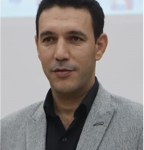
Ahmed Moursi
My name is Ahmed Moursi, I completed my Ph.D. degree in space dynamics at the Department of Astronomy, Al-Azhar University, Egypt in 2017. My research areas are space dynamics and celestial mechanics, especially the study and search of satellites, space debris, and near-earth orbits. I am a researcher at the space research laboratory, National Research Institute of Astronomy and Geophysics (NRIAG), Egypt from May 2015 to now. I have experience more than 12 years with optical observations including detecting and tracking space objects in different regions (LEO, MEO, and HEO) in addition to NEO searching. I helped tremendously with the establishment of the first optical station for space debris and near-earth object observations in NRIAG.
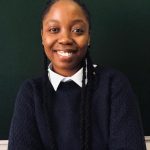
Keletso Dichaba
Keletso is a PhD candidate from Botswana who is currently serving the AfAS early career committee. She holds an MSc in Computer Science with a specialization in radio astronomy. Her research interests revolve around large scale structures such as galaxy clusters. Her focus is the understanding of the galaxy cluster evolutionary dynamics. She is also interested in machine learning analysis of galaxy populations and the general integration of computational techniques for automated source detection and classification.
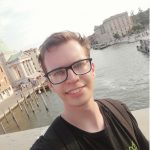
Keegan Trehaeven
My name is Keegan Trehaeven. I am a PhD candidate at the Centre for Radio Astronomy Techniques & Technologies (RATT) at Rhodes University, South Africa. I’ve always had a very inquisitive nature and adored the night sky as a child, and that naturally led me to pursue astronomy as a career path straight out of high school. My path was quite clear to me, especially given the rise of the MeerKAT telescope and other SKAO-related projects in South Africa at the time. I hope to help bring astronomy to the front lines of viable and sustainable career options for young, bright and driven Africans.
